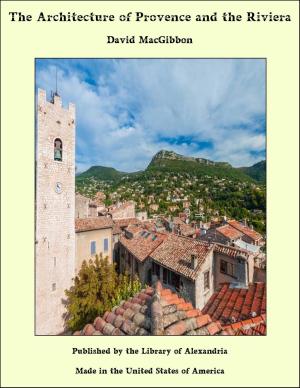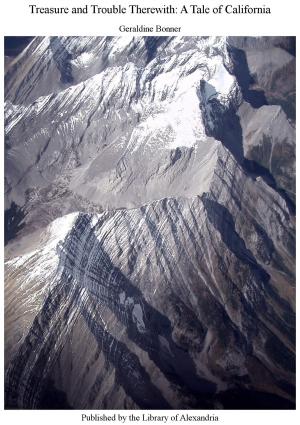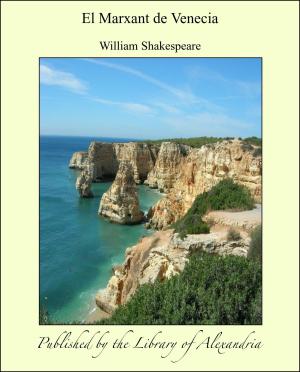Climbing in The British Isles: Wales and Ireland, Volume II
Nonfiction, Religion & Spirituality, New Age, History, Fiction & Literature| Author: | H. C. Hart | ISBN: | 9781465544766 |
| Publisher: | Library of Alexandria | Publication: | March 8, 2015 |
| Imprint: | Language: | English |
| Author: | H. C. Hart |
| ISBN: | 9781465544766 |
| Publisher: | Library of Alexandria |
| Publication: | March 8, 2015 |
| Imprint: | |
| Language: | English |
The present volume is intended to deal with all parts of the British Isles except England, which was the subject of Vol. I., and Scotland, to which Vol. III. will be devoted. Nothing is here said about the Isle of Man or the Channel Islands, because it would, no doubt, be considered absurd to advise anyone to visit those islands whose main object was the acquisition of mountaineering skill. Pretty as the former island is, its hills are nothing more than hills, except where they are also railways or tea gardens; and even on its cliffs, which are especially fine at the southern end, comparatively little climbing will be found. In the Channel Islands, on the other hand, the granite cliffs, though very low, being usually only 100-200 ft. high, abound in instructive scrambles. Many such will be found in Guernsey, Jersey, and especially in Sark, but the granite is not everywhere of equally good quality. The Scilly Isles, again, are by no means to be despised by climbers, especially by such of them as can enjoy knocking about in a small boat, which is almost the only means of getting from climb to climb. The granite forms are somewhat wilder and more fantastic than those in the Channel Islands. Peninnis Head is only one of many capital scrambling grounds. An article by Dr. Treves [1] gives a very good idea of the kind of thing which may be expected. If anyone should think of proceeding, under the guidance of this volume, to regions with which he is so far unacquainted, he will naturally ask how the climbing here described compares with the climbing in other parts of Britain or of Europe. How does Wales, for instance, stand with regard to Cumberland or the Alps? On this point some good remarks will be found in the Penny Magazine, vii., p. 161 (1838), where the writer assigns to the more northern hills a slight superiority over Wales. An impression prevails among those who know both that the weather of N. Wales is, if possible, more changeable than that of the Lakes. Climbers will notice this chiefly in winter, when the snow on the Welsh mountains less frequently settles into sound condition. Perhaps sudden changes of temperature are partly to blame for the greater frequency in Wales of deaths from exposure. Winter climbing is very enjoyable, but proper precautions must be taken against the cold. A writer on Wales some 300 years ago observes that 'the cold Aire of these Mountainous Regions by an Antiperistasis keeps in and strengthens the internall heat;' but a good woollen sweater, a warm cap to turn down over the ears and neck, and three pairs of gloves, two pairs on and one pair dry in the pocket, will be found quite as effectual. Dangers, however, cease not with the setting sun, and many who have defied frost-bite during the day fall an easy prey to rheumatism in bed at night. A groundless terror of the Welsh language keeps many away from Wales. The names are certainly of formidable appearance, and Barham's lines are hardly an exaggeration. But appalling words like 'Slwch Twmp' or 'Cwmtrwsgl' lose half their venom when it is explained that W is only a way of writing OO. In spite of its apparent complication the language is so simple and systematic that anyone can learn enough in a quarter of an hour to enable him to pronounce with ease and moderate accuracy any place-name with which he is likely to meet. Irish is less regular, but wonderfully rich in expressions for slightly varying physical features, while the Manx names are more interesting than the hills by which they are borne
The present volume is intended to deal with all parts of the British Isles except England, which was the subject of Vol. I., and Scotland, to which Vol. III. will be devoted. Nothing is here said about the Isle of Man or the Channel Islands, because it would, no doubt, be considered absurd to advise anyone to visit those islands whose main object was the acquisition of mountaineering skill. Pretty as the former island is, its hills are nothing more than hills, except where they are also railways or tea gardens; and even on its cliffs, which are especially fine at the southern end, comparatively little climbing will be found. In the Channel Islands, on the other hand, the granite cliffs, though very low, being usually only 100-200 ft. high, abound in instructive scrambles. Many such will be found in Guernsey, Jersey, and especially in Sark, but the granite is not everywhere of equally good quality. The Scilly Isles, again, are by no means to be despised by climbers, especially by such of them as can enjoy knocking about in a small boat, which is almost the only means of getting from climb to climb. The granite forms are somewhat wilder and more fantastic than those in the Channel Islands. Peninnis Head is only one of many capital scrambling grounds. An article by Dr. Treves [1] gives a very good idea of the kind of thing which may be expected. If anyone should think of proceeding, under the guidance of this volume, to regions with which he is so far unacquainted, he will naturally ask how the climbing here described compares with the climbing in other parts of Britain or of Europe. How does Wales, for instance, stand with regard to Cumberland or the Alps? On this point some good remarks will be found in the Penny Magazine, vii., p. 161 (1838), where the writer assigns to the more northern hills a slight superiority over Wales. An impression prevails among those who know both that the weather of N. Wales is, if possible, more changeable than that of the Lakes. Climbers will notice this chiefly in winter, when the snow on the Welsh mountains less frequently settles into sound condition. Perhaps sudden changes of temperature are partly to blame for the greater frequency in Wales of deaths from exposure. Winter climbing is very enjoyable, but proper precautions must be taken against the cold. A writer on Wales some 300 years ago observes that 'the cold Aire of these Mountainous Regions by an Antiperistasis keeps in and strengthens the internall heat;' but a good woollen sweater, a warm cap to turn down over the ears and neck, and three pairs of gloves, two pairs on and one pair dry in the pocket, will be found quite as effectual. Dangers, however, cease not with the setting sun, and many who have defied frost-bite during the day fall an easy prey to rheumatism in bed at night. A groundless terror of the Welsh language keeps many away from Wales. The names are certainly of formidable appearance, and Barham's lines are hardly an exaggeration. But appalling words like 'Slwch Twmp' or 'Cwmtrwsgl' lose half their venom when it is explained that W is only a way of writing OO. In spite of its apparent complication the language is so simple and systematic that anyone can learn enough in a quarter of an hour to enable him to pronounce with ease and moderate accuracy any place-name with which he is likely to meet. Irish is less regular, but wonderfully rich in expressions for slightly varying physical features, while the Manx names are more interesting than the hills by which they are borne















